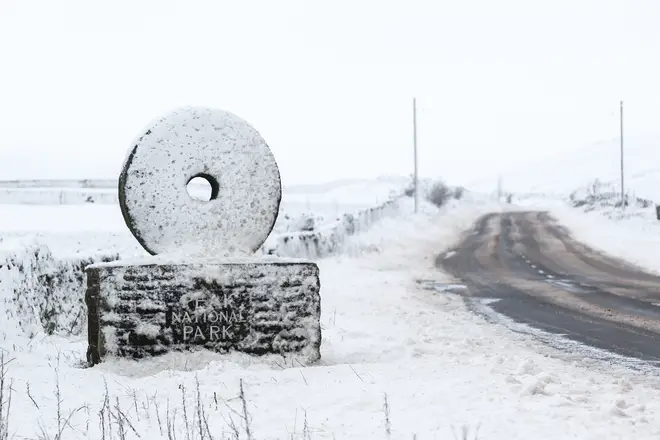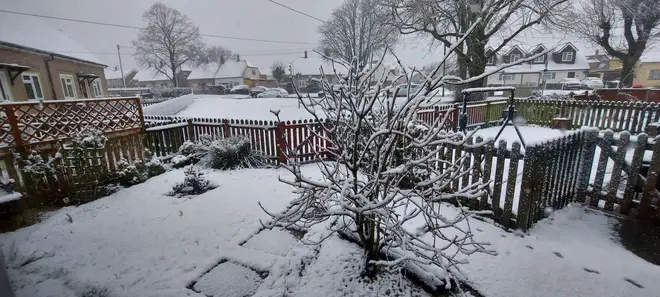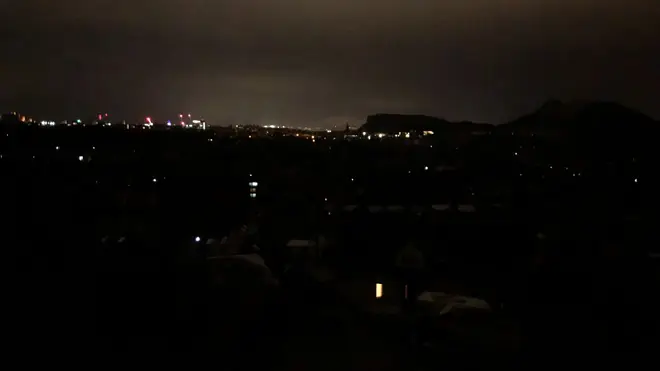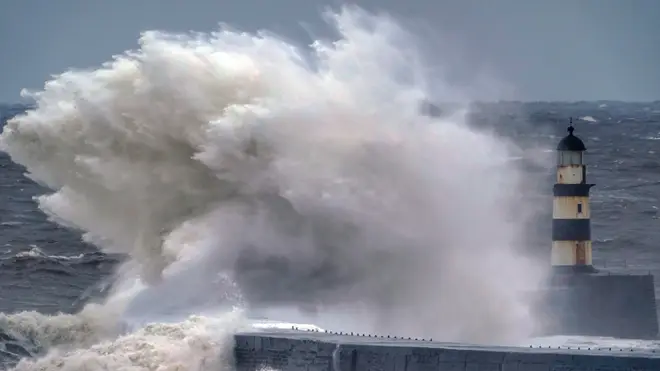
Nick Abbot 10pm - 1am
7 February 2021, 09:50 | Updated: 7 February 2021, 23:54

Trains cancellations, power cuts and Covid-19 vaccine delays have hit parts of the UK as Storm Darcy brings heavy snow and bitterly cold winds.
It is "bitterly cold" as strong easterly winds from Ukraine and the Black Sea area are spilling across the UK on Sunday, the Met Office said.
The winds made it feel like there were sub-zero temperatures across the country on Sunday, while many places on Monday will struggle to get much above freezing.
The east plus London and the south-east of England are covered by amber warnings of snow through to Monday lunchtime, which predict possible widespread travel disruption and power cuts.
Various warnings for snow and ice across eastern areas of England and Scotland are in place until Wednesday.
The Met Office said Sunday started "on a wintry note in some areas, with rain turning increasingly to snow across the south-east of the UK, and snow showers feeding into the north-east."

South east England blanketed by snow as Storm Darcy hits
The Essex Partnership University NHS Foundation Trust said its Colchester-based vaccination centre at the Jobserve Community Stadium was closed due to the snow, while Southeastern Rail strongly advised passengers not to attempt to travel on its network on Sunday or Monday.
It said the Maidstone East line will be closed on Monday and added: "Given the severity of the forecast some routes are closed with no replacement transport available."
Southern Railway said it had also cancelled trains on two of its routes.


Large parts of Edinburgh were plunged into darkness on Sunday night after the extreme weather hit Scotland's east coast.
SP Energy Networks said it was aware of a power cut in Edinburgh and the Lothians and that engineers were working to restore supplies.
People in Edinburgh took to social media to discuss the city in darkness on Sunday evening, including crime writer Ian Rankin, who jokingly said that he spent most of the outage trying to find his torch.
The National Grid Electricity System Operator (ESO) said it was aware of the power cut and is working closely with SP Energy Networks to investigate further.
40-minute power cut stretching from Edinburgh to Peebles. Spent 35 of those minutes finding torch and adding fresh batteries...
— Ian Rankin (@Beathhigh) February 7, 2021

Glasgow City Council said it had sent its gritters on Saturday evening to outlying priority routes and areas around vaccine centres in light of the "chilly" time ahead.
Many parts of Scotland and north-east England could see 2cm to 5cm of snow, with 10cm to 15cm possible in regions above 200m.
Roads may become blocked by deep snow, with the possibility of stranded vehicles and passengers.
In Durham, huge waves crashed into Seaham lighthouse as the storm sent artic conditions from the east.


Storm Darcy: Snowy weather hits the UK
Daytime temperatures will stay in low single figures for much of the country, with some places staying below freezing and the bitter winds making it feel even colder.
Public Health England (PHE) has issued a cold weather alert for the whole of England through to Wednesday and urged people to check on frail or older neighbours or relatives, especially those living alone or who have serious illnesses.
Dr Owen Landeg, of PHE, said: "Cold weather isn't just uncomfortable, it can have a serious impact on health.
"For older people and those with heart and lung problems, it can increase the risks of heart attacks, strokes and chest infections."